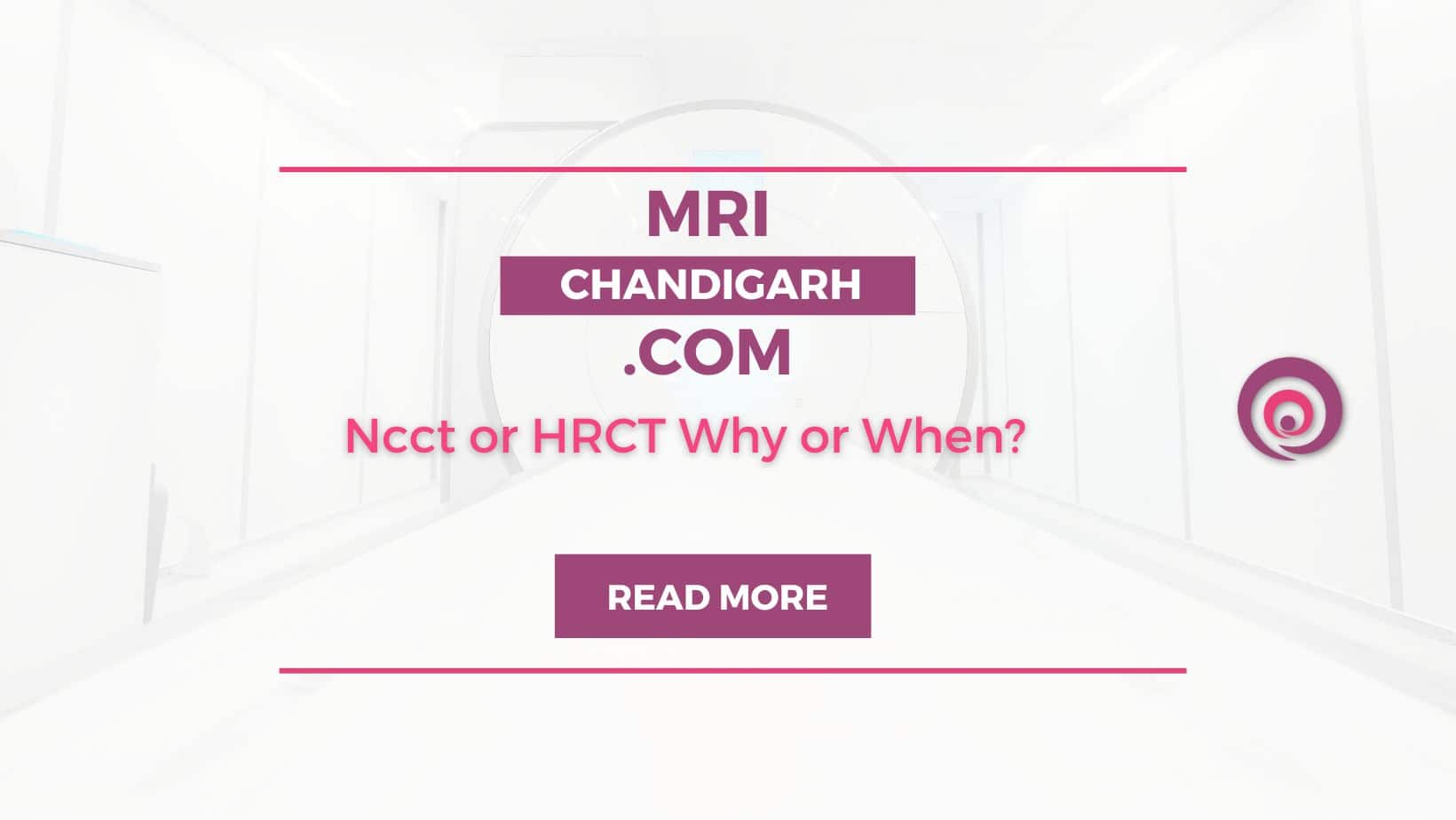NCCT Vs. HRCT: Why or When? While NCCT stands for Non-Contrast Computed Tomography or CT Scan, HRCT stands for High-Resolution Computed Tomography or CT scan!
Now,
I suppose; you can understand that NCCT & HRCT are both medical imaging tests that help detect abnormalities & diseases existing in our internal body!
They are both subcategories of CT scan, the process in which X-Ray machines lay used to generate a series of digital images of your internal body from different angles. CT scan requires radiopharmaceutical glucose to ensure the precision and clarity of the definite body part but does not involve any invasion.
What is an NCCT scan?
A Non-Contrast CT scan is nothing; but a higher version of an X-Ray, where the radiology team shall aim to generate eight different imagining slices of your internal body without the use of a contrast dye or radiopharmaceutical glucose. Yet, this scan can offer detailed images of your internal organs, especially meant for the lungs & heart!
Well,
You do not require any special preparation for this test and can pursue it amidst your rigid work schedule!
What is an HRCT scan?
A High-Resolution CT scan is the advanced version of a CT scan in which the conventional scanner lay used with higher imaging resolutions. This process offers more refined images of your internal organs and may or may not involve contrast dye to enhance the visibility of certain areas within your internal organs & tissues!
HRCT scan is more often used to identify muscle disorders and sinus problems that may not show up in a Non-Contrast CT scan or X-Ray.
In case a contrast dye lay involved, you certainly have to take some special preparation such as –
- Fasting for six hours before the test,
- Consulting with the doctor about regular medication intake,
- Avoiding smoking & alcohol before the test, and
- Avoiding the intake of over-the-counter painkillers containing aspirin!
Why an NCCT scan?
Perhaps,
A Non-Contrast CT scan has several benefits that make them a significant choice for your doctor to recommend during a disease diagnosis!
- Typically less expensive and does not leave any room for pain!
- NCCT Scan does not require you to intake any contrast material and therefore limits the possibility of side effects or further complications!
- Acts as a crucial tool to guide biopsies & surgeries of your internal organs!
- It is a simple, quick, and well-established process in medical imaging!
- Helps to generate cross-section images!
Why an HRCT scan?
A High-Resolution CT scan undoubtedly bears merit of advancement in medical imaging tests.
- Better anatomical resolution!
- Better time capture!
- The clarity of the image detailing!
- Detect abnormalities underlying deeper areas or a complex systemic disease!
- Help your doctor devise the best treatment with an early prognosis!
- A non-invasive procedure conducted on an outpatient basis!
- Less expensive compared to an MRI scan!
When do you need an NCCT scan?
You may order an NCCT scan based on what symptoms you show during the physical exam and the answers you provide on your medical history or lifestyle habits!
An NCCT scan is used mainly during, –
- An injury in your internal organ,
- Obstruction in the upper respiratory tract,
- Kidney & bladder stones,
- Origin of severe headaches,
- Internal bleeding,
- Stroke & its after-effects,
- Tumors in their early stage,
- Bone fractures,
- Bone diseases,
- Dislocation of your foot, elbow, or ankle ligaments,
- Polyps in your urinary tract, bladder, or reproductive organs,
- Sinusitis,
- Fibrosis,
- Emphysema, or the condition in which the air sacs in your lungs get damaged,
- The cervical, thoracic, or lumbar spine,
- Blockage in your ureter or kidneys,
- Bone & Organ Infections,
- The disparity in the mastoids,
- Trauma,
- Middle or Inner ear problems,
- Abnormality in your jaws or facial bone,
- Deviated septum,
- The problem in your bowel movements,
- Infarction & Seizures,
- Gorge Carcinoma, a kind of throat cancer,
- Multiple calcified subcortical nodules,
- Early ischemic changes,
And myriad more!
When do you need an HRCT scan?
Your doctors plausibly suggest an HRCT scan when they are suspicious of a complex disease growing beneath your flesh & skin!
An HRCT scan is typically meant to diagnose –
- Cancerous Growth in your organs or soft tissues,
- Pulmonary embolism or blockage in the pulmonary arteries,
- Idiopathic pulmonary fibrosis,
- Blood clots in your brain or other organs,
- Bronchitis & Bronchiectasis,
- Sarcoidosis,
- Congenital heart disease,
- Interstitial lung disease,
- Effect of Chemotherapy or Radiation therapy,
- Goodpasture’s Syndrome,
- Histiocytosis X,
- Chronic eosinophilic pneumonia,
- Pulmonary alveolar proteinosis,
- Collagen vascular disease,
- Auto-immune diseases like rheumatoid arthritis,
- Connective tissue diseases like lupus,
- Granulomatous vasculitis,
- Atypical infections,
And much more! The list is unending, indeed!
Bottom Line:
So,
The bottom line is your doctor may, on several occasions, opt for either of the CT scan approaches – NCCT & HRCT. Both have certain merits & demerits of their own & meant to serve mutually exclusive purposes!
Whatsoever your doctor recommends, you can’t help but abide by it! Make sure you ask your doctor about the prior preparation before up-taking either of the tests and if you have an experience already, feel free to share it with us by commenting below!
For a different query; altogether, do not hesitate to message us at www.mrichandigarh.com!
Mail us for Further Inquiries, at [email protected]
Call us, at 8699572364

Comments